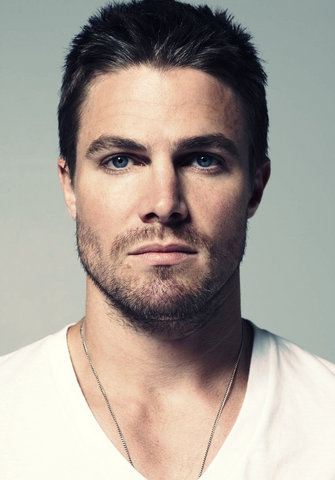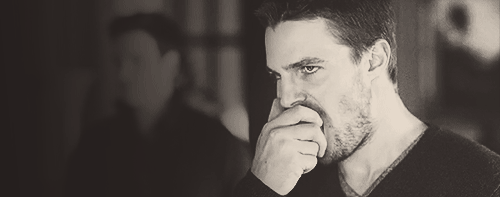
Name: Father Luca Petulengro
Age: 28
Gender: Male
Species: Human, an ally of the hunters
Nationality: Romani/ Mixed European
Personality: Luca is a gentle man. He loves people. His passion for helping others and his need to share the light of God often combine. He can be found working at homeless shelters on Saturdays, passing out soup and kind words. He lives at his church, along with anyone else who needs a place to stay.
His personality is humble and kind. He can be taken at face value, hiding no secret agendas or lies. Luca is very much the man he appears to be. He couldn't tell a lie if he wanted to.
On the subject of vampires, Luca is torn. On one hand, he believes that they are dangerous. They obviously aren't holy creatures. But on the other hand, they are capable of good. He doesn't exactly approve of the hunters killing them without even asking questions, but he understands the need to protect the townspeople. However, if a vampire came to him in earnest and asked for sanctuary, Luca probably wouldn't be able to say no.
Luca's tone of voice is almost always just barely above a whisper; below the normal volume but loud enough to be heard is a quiet room. The only times this changes is when he's preaching, and even then it's mostly because he had a microphone. He almost never raises his voice, and doesn't like it when others yell. He leans towards the meek side, although he has become much more outgoing in recent years. He's gotten much more comfortable around strangers, although any type of sexual advances or flirtations make him very flustered and uncomfortable.
Equipment: Just a worn, leather bound Bible and some old hand me downs. Luca believes that living in poverty keeps him closer to God and further from Earthly materialism. As such, he has no house, no car, and everything he owns was given to him. His income from his job goes almost directly back into the church.
Appearance: Luca is a very average man. He stands at 5'9" with dark brown hair, light tan skin, and brown eyes. He is of Romani and European decent, being a mix between the two. His clothes are very humble and modest, consisting of dress pants or jeans on days of the week and collared or button up shirts. On Sunday and Wednesday, he dons the iconic priests' robes to preach. He wears the same pair of brown leather shoes just about every day, except on Sunday when he swaps them for his black ones.
His hair is often a bit messy, refusing to be tamed by a comb. He has a little facial hair, which is usually kept neatly trimmed. Luca doesn't have any piercings or tattoos, but his back and arms are marred with scars from beatings he took in his childhood. Because of this, he often wears long sleeves. If it didn't get too warm in the summer, he would probably wear sweaters all year round.
Other:
Due to traumatic experiences in his past, he doesn't like to be touched without his permission. If someone surprises him with a hug, he stiffens up and is clearly uncomfortable. It's something he's been working on, but it's more or less become a natural reflex.
Luca is a pacifist. It's not so much something he vowed to do, but something that just comes naturally to him. He doesn't like to fight or hurt others, even in self defense. He would much rather try to talk things out, or just run if things get too hairy.
Luca is bilingual. His travels across Europe as a boy taught him to speak bits and pieces of several languages. He speaks fluent German and English.He knew a little English before he was brought to America, but as a whole, he didn't begin speaking it until he was 18.
Because of his priest status, Luca has taken a vow of celibacy. Although, to be honest, he probably would be regardless.
Hobbies of his include reading and gardening. He frequents local bookstores and coffee shops often and tends to the church's gardens every time he gets a chance.
History:
Luca came from a hard beginning. His family was a group of oldschool Romani that traveled the European countrysides. When they came into town to sell and buy, they were often met with discrimination and hate. Most places put up with them until they left, but it was when they reached a small town in Germany that their band was met with brutal forces. The mayor of the town called the police on them, having them arrested and shipped from the country.
Some of Luca's family fled, and some were captured and removed. But in the chaos, Luca was separated from them. At the tender age of 9, the boy was left to fend for himself. He quickly left the town that had attacked his family, afraid that they may hurt or even kill him. Luca wandered until he found a new, larger city to settle in. There, he lived on the streets until he was 13. A farmer approached him, offering him work in return for food and shelter. He had no intent of paying Luca, making the transaction completely illegal and slavery by definition. But Luca was desperate, so he agreed.
Luca worked long days on the farm, doing anything asked of him until his body and muscles hurt. He lived in the barn and ate whatever leftovers were brought to him. Although he was no longer freezing to death or starving, he was still miserable. The farmhands took to mocking and tormenting him, calling him a dirty gypsy while he did their work. If Luca ever tried to defend himself, he was typically beaten up until he learned to keep his mouth shut.
It was during this harsh time in his life that Luca reflected on his mother's teachings of God. Before, he had never given it much thought. But laying in the straw that was his bed, hurting from both work and wounds, faith made it possible to pull through. He snuck off of the farm one day to visit a bookstore in town. He had scraped together just enough money laying around to buy a Bible. He would hide it under the hay in the barn loft and only read it by moonlight at night. It was difficult, as he was practically illiterate, but over the years, it got easier.
Reading the Bible helped him endure years of physical, emotional, and occasionally sexual abuse at the hands of his 'employers'. He was 18 when a couple of Christian missionaries happened to come to the farm to buy fresh produce. They saw the boy in such poor living conditions. After pulling him aside to speak with him, hearing his story, they couldn't leave him there. By this point, Luca had become so accustom to his loss of freedom that when the farmer refused to relinquish him to the missionaries, he didn't even fight it. It didn't occur to him that he didn't actually belong to the man and his awful farmhands.
The missionaries went to the law. Police came to the farm and demanded that Luca be set free, eventually arresting the farmer for unlawful imprisonment and several workers for their treatment of the boy. The missionaries convinced Luca to come back to America with them, where he wouldn't face such cruelty and discrimination. They brought him to the church, where he learned to speak English and live like a civilized person. It took him a while to come out of his shell, but with gentle coaxing, Luca came to regard the clergy as his family.
With the oldest priest's help, Luca studied to become a priest himself. It took several years of hard work, as Luca was so behind on his schooling. But he was very passionate about it. He put a lot of hard work into helping those who lived on the streets, like he once had. He was the driving factor in getting the church's new homeless ministry off the ground. His kindness and drive made him very well accepted among the clergy.
Once he finally was able to attend seminary, paid for by funds scraped together by Father Walter and the clergy, he became a full fledged priest. He was very eager to work alongside his mentor, who had become something of a father figure to him.
Father Walter was a little strange sometimes. He saw some kind of potential in Luca that no one else seemed to see, and his faith in Luca allowed the young man to become what he is now. However, Luca always felt like Father Walter was preparing him for something more than just simple priesthood. He would insist that Luca attend classes on demonology and other odd topics. Luca figured the older man was just a making sure he got a well rounded education of religion. But then came the day that Father Walter left and never returned.
He told no one where he was going or why, but his car was found empty on one of the town's rural roads. It can only be assumed that the poor elder priest was gone from their world. Luca didn't take this news too easily, but he had to remain put together for the sake of the church. After all, Father Walter had left the entire clergy and members in his hands.
Aside from inheriting the church, Luca was also given a dusty old book that had once belonged to his elder. He had never laid eyes on it before, but the first page was dedicated to him. Inside, a note read:
"Dear Luca,
If you have been given this, then it must mean I am gone. I can only hope that I was able to teach you enough before I left my Earthly body. I know you are still young, and you haven't had an easy life, but I believe God has brought you to us for a specific reason. I planned to one day teach you about the strange things in this world, but I wanted to give you a chance to find yourself first.
However, if you have found this journal, then it means that I have died before I got that chance. You must read through this book to learn what you must do, as it is now your duty to take my place. Our small town of Middleborough depends on you..."
































